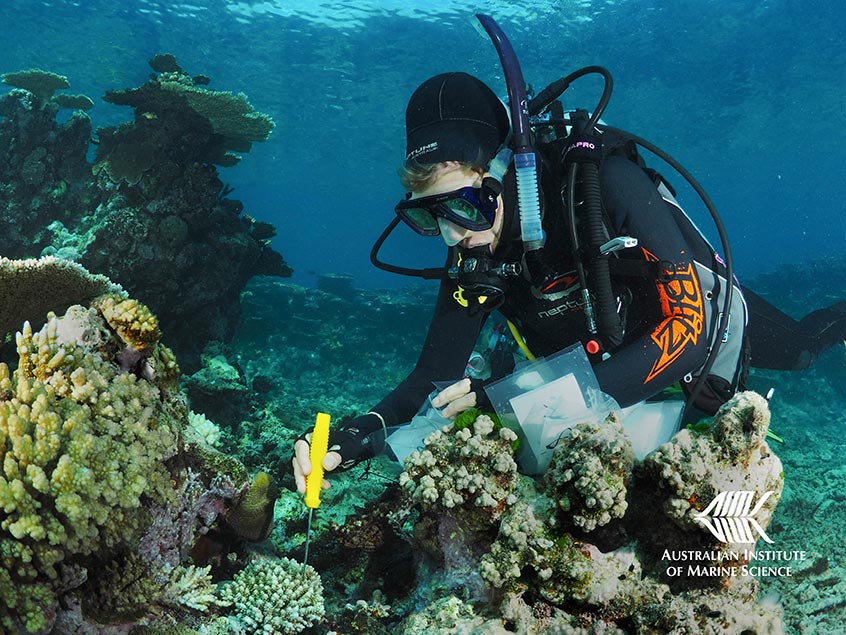Application of field treatments to enhance coral survival

Probiotics for corals is one method being explored. Photo: Christopher Brunner, courtesy Australian Institute of Marine Science
Functional objective:
Increase coral survival and reef health following disturbance with probiotics, feeding, medicine or other treatment
Delivery method:
Field treatments
Deployment scale:
Small (a few hectares, a single reef) to medium (20 or more reefs)
Subprogram:
This potential intervention is the application of medicines, food or probiotics (treatments) to corals or reefs to enhance survival during natural stress events.
Treatments could be grown, cultured or manufactured on land and applied to colonies or reefs during or following stress.
Probiotics
Like all animals, corals are inhabited by a microbial community – the coral microbiome. The coral microbiome is essential for coral health and can have a significant impact on coral bleaching tolerance.
Research suggests that manipulating corals’ microbiome could further support coral heath and increase corals’ tolerance to environmental stress.
The coral microbial community has large and diverse populations which have very short generation times and a large metabolic range compared with the coral host. Therefore, evolution can occur much more quickly within the coral microbiome than in coral.
Treatments can be applied to corals during rearing, to settlement and deployment devices or directly to the reef.
It is not fully understood if the introduced probiotics would need to be continuously re-applied to be effective, and whether they could be passed down to offspring as well as to neighbouring corals.
It may be challenging to deliver them on a large scale in the field, but it could involve small and large vessels, aeroplanes or drones.
While coral probiotics could be a very promising tool to mitigate coral disease and enhance coral heat tolerance, potential side-effects on both the coral and other reef organisms would need to be examined.
Alternative foods
Providing alternative foods to optimise health, growth and survival of corals in captivity, during transport and on the reef following stress. Foods can be derived from bacteria, plants and animals, and can be pure or formulated.
Diagnosing, immunising against, and treating coral disease
Coral immunity to disease is thought to be diminished by warm seawater temperatures. Diagnosis, immunisation and disease treatment could limit the spread and effects of coral diseases and contribute to the recovery of bleached corals.
This potential intervention includes treating or preventing coral disease to enhance the growth and survival of corals during the propagation phase or to aid recovery of impacted corals. Potential approaches include antioxidant and anti-microbial biological systems, as well as phage therapy (using a virus to treat a bacterial disease).






